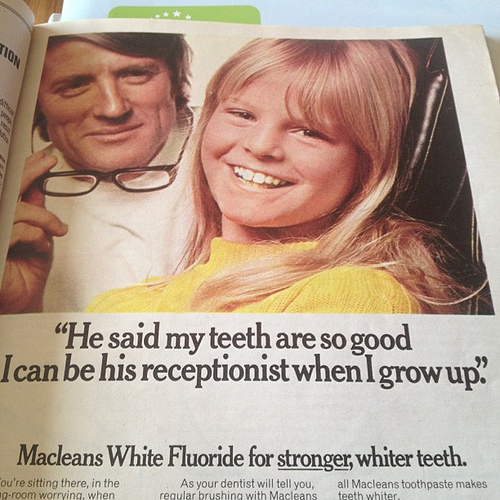Over 80% of Americans don’t have a gym membership. The gym market is split among low-cost gyms with limited equipment and amenities, specialty gyms (for disciplines including powerlifting, weightlifting, climbing, or CrossFit), and “fitness clubs” with extensive services and amenities including training, massage, swimming pools, and so on.
Planet Fitness hasn’t tried to woo the less than 20% of people who already want to go to the gym – it’s gone hard after the other 80%, people who don’t like gyms, feel anxious in gyms, and may feel a need for fitness activity but probably don’t have performance goals. Planet Fitness tries to make going to the gym a fun thing with oft-derided events like bagel days and pizza feeds. This approach has kept it in business for more than 20 years. Unfortunately, in its zeal to avoid judging people for not being fitness freaks, it’s swung pretty far in the other direction.
 Someone who judges – you mean, like, someone who uses
Someone who judges – you mean, like, someone who uses
pejorative slang terms to refer to other people?In a New York Times article about Planet Fitness’s marketing, Steve Red, the chief creative officer of marketing agency Red Tettemer & Partners (responsible for Planet Fitness’s recent “gymtimidation” campaign), was quoted about the aspirational approach to promoting health clubs: “I’m never going to get to be that washboard-stomach, super-cut guy that I see in the Equinox ads,” he said, referring to the chain of upscale gyms. “There are a ton of gym brands that are all about being cut and sinewy and having a six-pack, but I would argue that approach is not aspirational — it’s inaccessible.” (A Gym for People Who Don’t Like Gyms).
Planet Fitness doesn’t try to attract people who are reaching for the stars, whether in sheer amounts of weight lifted (its gyms don’t have the equipment heavy lifters need for training) or “perfect” abs (some argue the food offerings are part of a strategy to keep members feeling “failed” in fitness goals). A place you can go to get a nice bit of exercise, indeed where food is not “the enemy,” is a nice idea for a fitness company – it would be nice to see it done well.

A wild lunk appears!
From one of Planet Fitness’s adsBut nobody likes being insulted. People who love heavy weight training, in particular, love to bag on Planet Fitness – and it’s easy to understand, when Planet Fitness has explicitly insulted and derided them in ads meant to show what their gyms are not. The hostility Planet Fitness expresses toward powerlifters and other gymgoers is offensive and contemptible, but it touched a nerve in Planet Fitness’s target market, as its “we’re not a gym” branding has done for years.
This tension and cliquishness has always bothered me. Both sides say some pretty wrong things. The “gymtimidation” campaign, with its laughable stereotypes and overt hostility, handily puts the lie to Planet Fitness’s claim of being a judgment-free zone, but a lot of responses in the fitness community haven’t exactly elevated the debate — and that helps to make life worse for everyone involved. Whenever I hear someone insult Planet Fitness members — not just the company’s marketing — as unrealistic or stuck in their own headspace, as weak-willed people that just need to suck it up and learn to work hard, I think, “You are the reason Planet Fitness exists.”





